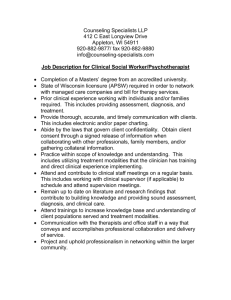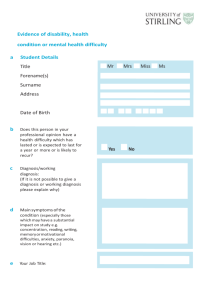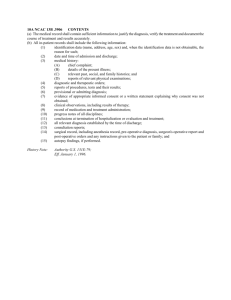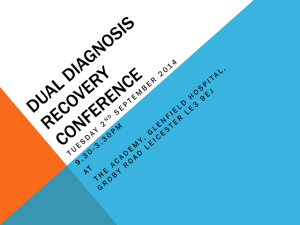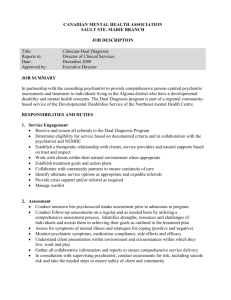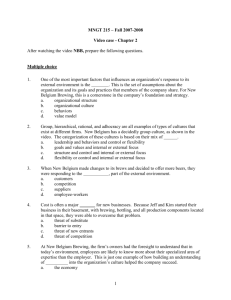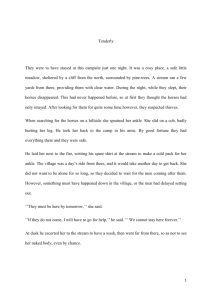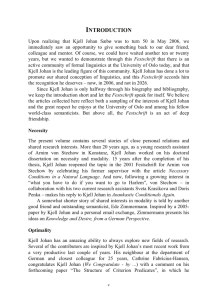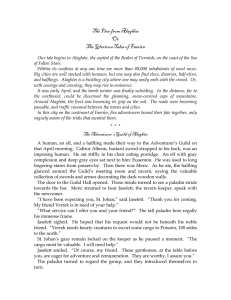TRIADD training: Belgium
advertisement
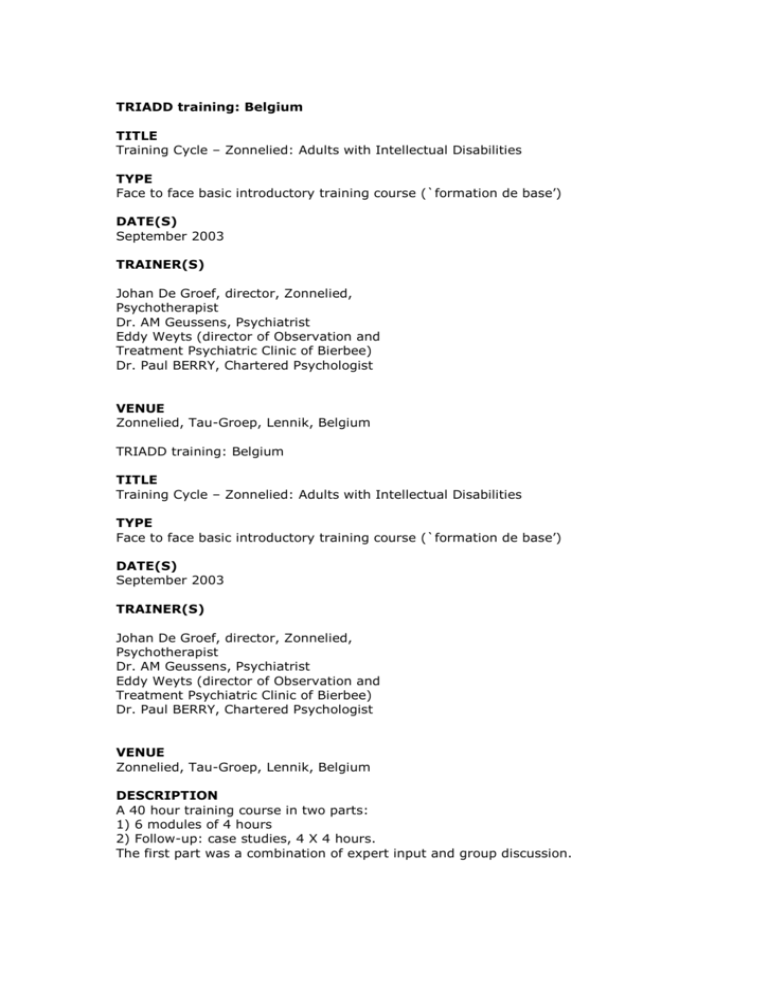
TRIADD training: Belgium TITLE Training Cycle – Zonnelied: Adults with Intellectual Disabilities TYPE Face to face basic introductory training course (`formation de base’) DATE(S) September 2003 TRAINER(S) Johan De Groef, director, Zonnelied, Psychotherapist Dr. AM Geussens, Psychiatrist Eddy Weyts (director of Observation and Treatment Psychiatric Clinic of Bierbee) Dr. Paul BERRY, Chartered Psychologist VENUE Zonnelied, Tau-Groep, Lennik, Belgium TRIADD training: Belgium TITLE Training Cycle – Zonnelied: Adults with Intellectual Disabilities TYPE Face to face basic introductory training course (`formation de base’) DATE(S) September 2003 TRAINER(S) Johan De Groef, director, Zonnelied, Psychotherapist Dr. AM Geussens, Psychiatrist Eddy Weyts (director of Observation and Treatment Psychiatric Clinic of Bierbee) Dr. Paul BERRY, Chartered Psychologist VENUE Zonnelied, Tau-Groep, Lennik, Belgium DESCRIPTION A 40 hour training course in two parts: 1) 6 modules of 4 hours 2) Follow-up: case studies, 4 X 4 hours. The first part was a combination of expert input and group discussion. OBJECTIVES • To familiarise professionals with one single framework of re.ection: the theory of ‘anthropopsychiatry’. • The application of this framework, on the basis of case studies • The further clari.cation of this framework through the use of practical examples • To situate this work in the framework of the regional care circuit and the Dual Diagnosis group within this network. PROGRAMME Six training modules 1)Introduction • Definition/different theories • Observing/interpreting transfer/subjectivity • Presentation of the anthropopsychiatric model • lines of development • structures • normal and abnormal • at an individual/group/institutional level. 2) Contact (`le contact’) • Mood/ambience • Problems of mood 3) Le sexuel’ • the body • perversion • aggression 4) The Paroxysmal • Rules and norms • Neuroses • Function/role status 5) The Ego (`Le moi’) • identity (the verbs : to be and to have) • psychoses 6) Therapeutic Methods • medication • psychotherapy • the pedagogical milieu • the family • the group • the service/institution as a therapeutic tool • the care circuit in the Brabant Flemish province Second part At least 8 case studies (each case 2 hours) brought by the support workers. METHODS Theoretical exposés by experts (psychiatrists, therapists service directors) having written on this subject. Each participant was asked to prepare three case studies or situations relating to their work directly with users. Discussions on presentations and exchanges took place on cases presented by participants. DOCUMENTATION Key words from Triadd project V. Sinason: Mental Handicap and the Human Condition S. Korff-Sausse: Le Miroir Brisé Johan De Groef : Psychoanalyis and Mental Handicap TARGET AUDIENCE Pedagogical professionals, support staff, psychologists. LANGUAGE Dutch, English EVALUATION The Belgian course took place on three separate days. The evaluator attended only at the end of the course and only 7 questionnaires were received. The course differed from the others in that it was specifically psychodynamic/ psychoanalytically orientated. Of the 7 respondents, not one had visited the website nor read the key words. The participants however rated the face to face course positively. For example they rated their knowledge of dual diagnosis as (mean) 3.3/5 after the course compared to (mean) 2.6/5 before the course. Of the 7 participants responding, it must be noted that three were psychologists, the others being trained as care staff and in pedagogy. They rated other aspects of the course as follows: 1. course objectives 15 positive points 7 neutral/negative points 2. course organisation 28 positive points 7 neutral/ negative points 3. learning effectiveness 20 positive points 8 neutral/ negative points Comments on the course suggested that the case studies presented were especially important. The participants commented that the theoretical aspects of the course were especially meaningful and that this aspect and orientation of the course helped these front line staff in the process of self reflection. This point was emphasised by almost all the responding participants. One criticism was that it might be better to have a three day intensive course rather than three one day separate sessions. This rather specific orientation (i.e. psychodynamic approach) seems to be a useful approach in the diagnosis and treatment of people with dual diagnosis. FOLLOW-UP Follow-up questionnaires by participants are still being received and assessed.
